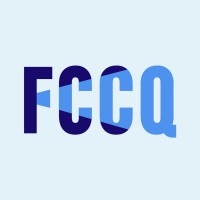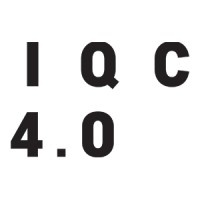
Open
Ambition-Compétences — Green Economy and Digital Transformation
Last Update: December 4, 2025
QC, Canada
The Ambition-Compétences program enhances workforce skills for adapting to digital and green economic transformations.
Grant and Funding
Wage Subsidies And Interns
At a glance
Funding available
Financing goals
Develop employee skills
Integrate new technologies
Eligible Funding
- Up to 100% of project cost
Timeline
- Unspecified
Eligible candidates
Eligible Industries
- All industries
Location
- Quebec
Legal structures
- Non-profit
- Public or Parapublic institution
- For-profit business
- Non-financial cooperative
Annual revenue
- All revenue ranges
Organisation size
- All organization sizes
Audience
- All groups
Non-profit candidates
Sector of operation
- Environment
- Economic, Social and Community Development
- Employment and Training
Target groups
- Business owners / entrepreneurs
- Nonprofits / charities
Revenue structures
- All structures
Scope
- Local
- Regional
- Provincial
Overview
The Ambition-Competences program aims to develop workforce skills through targeted project calls that address specific needs, economic sectors, or particular job roles. It supports training projects related to digital transformation and the green economy, eligible for up to 85% financial assistance for expenses like salaries, professional fees, and essential tools. To qualify, projects must involve at least two companies and can include activities such as adapting, updating, or offering existing training.
Activities funded
- Development and administration of training to adapt workforce skills to digital transformations and the green transition.
- Preparation of companies and workforce for digital and green transitions.
- Analysis of the impact of digital and green transformations on training needs, skills transformation, or job roles.
- Development of activities that evaluate the needs for digital and green competencies.
- Creation and dissemination of training that meets the identified needs due to digital or green shifts.
- Assessment of training needs and preparation of training strategies.
- Adaptation or updating of existing training programs to align with current technological or environmental demands.
Examples of admissible projects:
$ 80,750
Developing technical skills for renewable energy projects
$ 85,000
Developing a digital literacy training program for employees
$ 63,750
Creating managerial skills training for digital transformation
$ 102,000
Implementing green transition training across industries
$ 93,500
Building a skills enhancement program for digital literacy
Eligibility
- The project must be related to digital transformation or the green economy transitions.
- Projects must address the needs arising from digital transformations or the green transition, including the impact on training needs, skills transformation, or job transformation.
- Applicants must be registered promoters with a Quebec business number and be a permanent collective grouping of organizations such as employer associations, legally constituted worker associations, or recognized training mutuals.
- Projects must involve at least two businesses and respond to the needs of several workers.
- Eligible employers include private for-profit enterprises, cooperatives, and non-profit organizations.
- Entities strongly funded by public funds or those in specific governmental or political categories are not eligible.
- Eligible participants include employed individuals, regardless of their tenure, self-employed workers, and seasonal workers during off-employment periods.
- Training must align with structural objectives and be administered in a qualifying framework adhering to the program's goals.
Who is eligible?
- Private for-profit businesses
- Cooperatives
- Non-profit organizations
Who is not eligible
- Municipalities.
- Ministries, organizations, and state corporations of the government of Quebec.
- Ministries, organizations, and state corporations of the government of Canada.
- Companies or organizations financed at more than 50% by public funds, except for those part of the social economy and community action sector, Cultural Human Resources Council, private non-contracted long-term care centers, and Indigenous enterprises and organizations.
- Political parties or associations.
- Companies and organizations in debt to the Ministry of Labour, Employment and Social Solidarity, unless they comply with a written repayment agreement.
- Companies and organizations engaged in controversial activities unsuitable for association with the Ministry or CPMT.
- Companies and organizations experiencing a labor conflict, such as a strike or lock-out.
- Companies and organizations that are subject to the Charter of the French language and have not obtained their francization certificate.
Eligible expenses
- Salaries linked to the internal resource assigned to project realization, up to a maximum of $25 per hour for training personnel.
- Professional fees, including consultants, trainers, and subject matter experts, up to $150 per hour.
- Expenses related to the acquisition of essential tools for the project, such as databases, software, licenses, digital platforms, and specialized technical tools.
- Costs for an interpreter or for adapting educational and instructional material for employees with limitations.
- Administrative support costs including secretarial and linguistic revision of educational materials.
- Travel, accommodation, and meals for training personnel or trainees, according to the Treasury Board directive.
- Instructional or promotional materials.
- Management activities, up to 10% of the financial aid amount.
- Development or adaptation of pedagogical material, whether virtual or physical.
- Real costs for the update of training materials, such as the adaptation of in-person training to online formats.
- Housing costs, equipment rental, and classification test fees are covered based on real costs.
- Reimbursement of applicable taxes.
Selection criteria
- Alignment of the project with the objectives of the call, such as addressing the impact of digital transformation or green transition.
- Clear explanation of activities that aim to develop or adapt workforce skills in response to these transformations.
- Demonstration of measurable objectives in line with the project call and program goals.
- Evidence of potential project impact on both the participants and the participating companies.
- Provisions for accountability, showcasing how the project will achieve its objectives and impact.
- Comprehensiveness of the proposed project stages, including needs analysis, training development, and adaptation.
How to apply
1
Verification of ongoing project calls
- Consult the list of ongoing project calls to check the availability of your area of interest.
- Ensure that the deadline has not yet been reached and that the project meets the objectives targeted by the call.
2
Preparation of the request
- Analyze the training needs of your staff.
- Develop or adapt a training project that meets the criteria of the call for projects.
- Gather the required information for the application form.
- Prepare the Budget file for the grant application.
3
Submission of the request
- Fill out the required grant application form.
- Attach the Budget file of the grant application.
- Send all documents by email to the specified address.
4
Processing the request
- Wait for the processing time of 20 working days.
- Be ready to provide any additional documents if necessary.
Additional information
- The financial assistance granted can cover up to 85% of eligible expenses, which include specific salary-related costs and professional fees.
- Admissible expenses include salaries for staff involved in the project, professional fees, acquisition of necessary tools, and administrative support expenses.
- Training projects must be implemented for personnel from at least two different companies and have a maximum duration of 36 months.
- All training and resources must be provided in French, except in certain cases specified by the program guidelines.
- Potential applicants can benefit from support in defining the training project and developing a budget proposal.
- Applications undergo a review period of 20 working days, during which incomplete applications will not be processed.
- Additional required documentation must include the "Demande de subvention" form and the budget file, submitted via email to the specified address.
- The call for projects is open until funds are exhausted, and the Commission reserves the right to terminate the call at its discretion.
Contacts
partenaires@mess.gouv.qc.ca
QC, Canada
Apply to this program
Frequently Asked Questions about the Ambition-Compétences — Green Economy and Digital Transformation Program
Here are answers to the most common questions about the Ambition-Compétences — Green Economy and Digital Transformation. This section explains what the program is, how much funding is available, eligibility requirements, application deadlines, and other important details to help you determine if this grant is right for your business.
What is the Ambition-Compétences — Green Economy and Digital Transformation?
How much funding can be received?
Who is eligible for the Ambition-Compétences — Green Economy and Digital Transformation program?
What expenses are eligible under Ambition-Compétences — Green Economy and Digital Transformation?
Who can I contact for more information about the Ambition-Compétences — Green Economy and Digital Transformation?
Where is the Ambition-Compétences — Green Economy and Digital Transformation available?
Is the Ambition-Compétences — Green Economy and Digital Transformation a grant, loan, or tax credit?
Apply to this program
More programs like this

Grant and FundingClosed
MAPAQ — Food Processing Program — Component 2
Ministry of Agriculture, Fisheries and Food (MAPAQ)Enhancing productivity through food industry automation assistance

Grant and FundingOpen
Efficient Solutions Program — Medium and Large Businesses Component
Hydro-QuébecHydro-Québec's energy efficiency program for enterprises

Grant and FundingOpen
ESSOR – Component 1C: Support for investment projects (implementing a digital plan)
Investissement Québec (IQ)Support for investment projects in Quebec

Tax CreditsOpen
Development of E-Business Tax Credit (CDAE)
Investissement Québec (IQ)Tax credit for development of a Quebec e-business

Wage Subsidies And InternsOpen
Accueillez un stagiaire
Fédération des chambres de commerce du Québec (FCCQ)Quebec internship wage subsidies for diverse student inclusion

Grant and FundingOpen
ÉcoPerformance — Recommissioning of building mechanical systems
Gouvernement du QuébecFunding to optimize the operation of building mechanical systems

Grant and FundingOpen
Workforce Training Measure (MFOR)
Gouvernement du QuébecWorkforce Development Program Supporting Employee Training in Québec

Expert AdviceClosed
Quebec Initiative for Construction 4.0 — Stream 1
Groupe BIM du Québec (GBQ)Digital transformation plan for Quebec construction industry

Grant and FundingOpen
Ecocamionnage Program — Logistics Project Component
Minister of Transport and Sustainable Mobility of QuebecGreenhouse emission reduction aid for freight transport

Grant and FundingClosed
Support for Innovation and Productivity for Québec manufacturing companies (SIPEM) - Part 1
PROMPTSupports technological innovation for Quebec manufacturing productivity
Sign up to our platform to access the Ambition-Compétences — Green Economy and Digital Transformation information sheet for free
Get access to 4,000+ programs, practical guides, personalized alerts, and an AI assistant to support your grant applications.